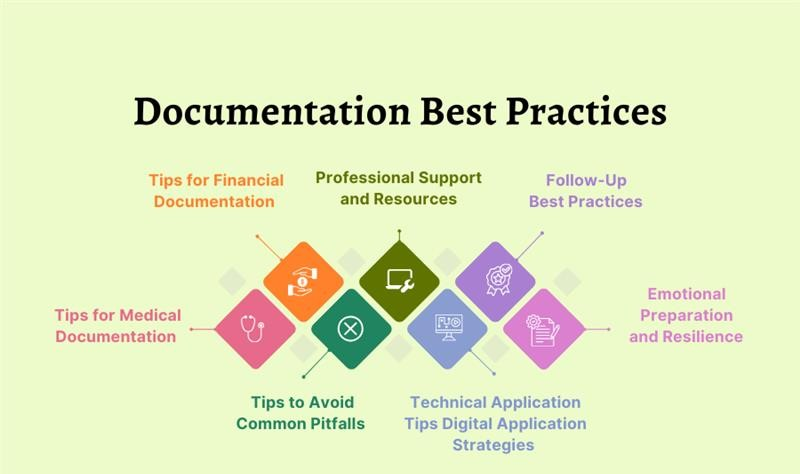
Improved Daily Living Support & Funding:
What can Improved Daily Living Support & Funding be used for? A Mini Blog
Leave a Comment / Daily Living / By admin
Table of Contents
- What can Improved Daily Living Support & Funding be used for?
- Navigating the Application Process: Tips for Success
- FAQs on Common Misconceptions About Improved Daily Living Fund
- Expert Recommendations on Maximising Your Funding
- Unlock Your Potential: Transform Your Life with K-One Community Services and Care
Looking for some assistance with your daily needs? Still, trying to understand key areas of support? Need help knowing the application process? Do you have some misconceptions about the Improved Daily Living Funding used for skill development and therapy? This Mini blog on what can improve daily living funding will help you.
What can Improved Daily Living Support & Funding be used for?
Key Areas of Support: How Improved Daily Living Support & Funding Makes a Difference
Do you know about Improved Daily Living Support & Funding? Some of the main areas in which Improved Daily Living Funding can be used are as follows: These are:-
- Early Childhood Interventions: If you have a younger child, who is living with a disability. Early childhood intervention is the right choice for you. Your child learns new skills.
- Therapy Supports: Your independence improves. You get to learn communication, socialising, and building relationships.
- Increased Community Participation: Your NDIS Increased Community Participation allows you to connect with people more easily.
- Multidisciplinary Teams: Your NDIS Assistance helps people with occupational therapists, physiotherapists, psychologists, neurologists, special educators, and social workers.
- NDIS Nursing Care: Your NDIS Nursing Care helps you get suitable assistance for rehabilitation services, including post-acute care or rehabilitation.
- Low-Cost Assistive Technology: Your low-cost assistive technology can help you to get devices and equipment. Some of the examples include:
- Bathing or toileting support items
- Pressure care devices
- Bed transfer aids
- Some communication supports
- Walking sticks
- Various other low-cost assistive technology products
- Specialised Driving Training: Funding for your vehicle training can have other services like
- old vehicle modification
- extra insurance costs,
- getting an engineering certificate
- Getting specialised driving lessons
- Regular transport needs
- Training for Support People: You can get training from the different modes like: –
- Your NDIS Commission creates online training modules for your workers.
- Your NDIS worker can get manual handling techniques and safety measures.
- Disability support workers can get two-part courses. This focuses on safe manual handling and used equipment.
- Your NDIS Support worker training encompasses Core support, Capital Support, and Capacity-Building Support.
Now that you know that NDIS Improved Living Support gives you multiple services let us see how you can proceed with the application process. This will help you better understand what improved daily living funding can be used for.
Refer this blog – A quick guide on how to claim, use, and plan your NDIS funds.
Navigating the Application Process: Tips for Success
You can apply for Improved Daily Living Support & Funding. This needs the right approach for you. We can help you navigate the process.
Preparing the Foundation of a Successful Application
- Gathering holistic information: You must collect your detailed medical reports and professional assessments. Your physician statements can help. You also need to have proof of disability support.
2. Sources of Research Funding: You can explore some of the forms of funding that are:
- State-specific assistance initiatives
- Government disability support programs
- Non-profit organisation grants
- Local Community support grants
- Specialised disability funding programs
Documentation Best Practices
You need to keep certain things in your mind for the documentation best practices.

Tips for Medical Documentation
- Request holistic medical assessments.
- You need to have documentation for 6-12 months.
- Your primary healthcare providers need to give you detailed letters.
- It would help if you collected the impact statements about daily living challenges.
Tips for Financial Documentation
- It would help if you prepared recent tax returns
- You also require current medical expenses
- You have to give a precise breakdown of anticipated support costs
Tips to Avoid Common Pitfalls: We will give you tips to avoid the common pitfalls and proceed with the process.
- Incomplete or unclear documentation
- Missing deadlines
- Failing to follow specific program guidelines
- Submitting outdated or irrelevant information
- Not seeking professional guidance when needed
Professional Support and Resources Recommended Support Channels
- Disability support organisations
- Local government disability services
- Social workers specialising in disability supports
- Legal aid services focused on disability rights
- Professional application consultants
Technical Application Tips Digital Application Strategies
- Using clear, readable digital scans of documents
- Organising files systematically
- Creating digital and physical backup copies
- Following up on the specific file format needed
- Using a secured, encrypted method for document submission
Follow-Up Best Practices
- Keeping detailed records of all communications
- You also should note application submission dates
- Setting follow-up reminders
- Maintaining a persistent and professional approach
- You need to prepare additional information, promptly.
Emotional Preparation and Resilience
- Understand that rejections are possible.
- Be prepared to appeal decisions
- Maintain detailed records of all interactions
- Seek emotional support from family, friends, or support groups
- Stay patient and persistent
Your NDIS Improved Daily Living Support & Funding application process requires preparation, attention to detail, and resilience. By following these strategies, you increase your chances of securing the support that can significantly improve your quality of life.
FAQs on Common Misconceptions About Improved Daily Living Fund
We’re sure that you need clarity on some common misconceptions. So, let’s start debunking them. This is an important aspect related to what improved daily Living Funding can be used for.
Does the NDIS Fund go directly to the bank account?
Can your NDIS Support be the same throughout your life?
What can Improved Daily Living Funding be used for regarding assistive technology?
If you have more questions, you can contact your NDIS Service provider, Local Area Coordinators (LACs), or General practitioners (GPs).
Expert Recommendations on Maximising Your Funding
After learning what can improve daily living funding, we have some expert recommendations to help you maximise your funding. Some of these recommendations are:
- You can consider local NDIS Providers
- You can also have longer support sessions. Try to do it more frequently.
- You can avoid peak times for any communication.
- You can also check if Medicare covers the support you require.
- It would help if you also avoided the NDIS tax.
You can go ahead with an internal review of the NDIS decision by either mail or call.
Unlock Your Potential: Transform Your Life with K-One Community Services and Care
Navigating improved daily living funding can be manageable. K-One Touch And Care is your trusted partner in maximising NDIS capacity building and improved daily living skills. We understand that every individual’s journey is unique, and our dedicated team specialises in helping you explore the full spectrum of NDIS funding categories.
Navigating improved daily living funding can be manageable. K-One Community Services and Care is your trusted partner in maximising NDIS capacity building and improved daily living support & skills. We understand that every individual’s journey is unique, and our dedicated team specialises in helping you explore the full spectrum of NDIS funding categories.
Contact K-One Community Services and Care Today – Your Path to Independence Starts Here!
Post navigation

One Response